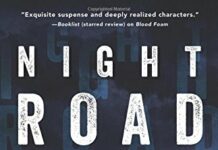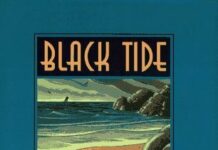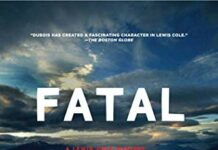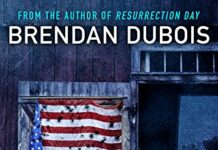
Ebook Info
- Published: 2004
- Number of pages: 272 pages
- Format: Epub
- File Size: 0.38 MB
- Authors: Brendan DuBois
Description
Retired Department of Defense research analyst Lewis Cole loves his small New Hampshire town of Tyler Beach, and he shares this affection with his friend Jon Ericson, an eccentric retiree who’s convinced Vikings had once lived in their town, more than a thousand years ago. For years Ericson has searched for artifacts to prove Vikings had a settlement on the New Hampshire coastline, and when Lewis gets a phone message from Ericson that he’s finally found this evidence, Lewis races over to congratulate him. But when he reaches Ericson’s house, however, there is no celebration: there is only a crime scene. In the minutes after the excited phone call, someone has brutally murdered Lewis’ friend and stolen the artifacts. Who could have committed such a crime? Ericson’s estranged brother, a convict who deals in stolen antiques? A disgruntled town resident, jealous of Ericson’s quest? Or someone else who would easily kill to cover up such an archaeological discovery? These questions and others haunt Lewis, but Lewis is sure of one thing: he intends to avenge Ericson’s death, recover the missing Viking artifacts, and honor his friend’s memory, even if it means paying a stiff price — exchanging his beachfront home for a prison cell.
User’s Reviews
Editorial Reviews: From Publishers Weekly DuBois’s suspenseful fifth Lewis Cole mystery, a low-key blend of social issues and history that exposes northern New England’s seedy underside, marks a return to form after 2002’s disappointing Killer Waves. The magazine columnist and former government service employee (read secret Defense Department specialist) briefly befriends Jon Ericson, an amateur archeologist with a handheld metal detector who drops by claiming to have proof that his Viking ancestors landed centuries earlier near Cole’s beachfront home. When Ericson is found shot at his desk, Cole goes to work to find his killer. This ever-more-complex case involves a myriad of players, including a lesbian police detective, a down-and-out hit man and Ericson’s lowlife brother, an ex-con turned antiques dealer. This taut, homespun whodunit takes the reader on an exhilarating ride the length and breadth of New Hampshire, from the university at Durham to the office of a questionable “First People” advocacy group in a rundown waterfront neighborhood, culminating in an unexpectedly chilling conclusion. FYI: DuBois has won two Shamus Awards. Copyright © Reed Business Information, a division of Reed Elsevier Inc. All rights reserved. From Booklist Lewis Cole, a retired “research analyst” for the U.S. Department of Defense, is trying to live a peaceful life in the small resort town of Tyler, New Hampshire. If only mysteries would stop landing on his doorstep. Take Jon Ericson, for example, a guy who wanders into town looking for evidence that Tyler Beach was once the site of a Viking settlement. Cole never heard of the guy until he showed up one day, but they become friends, and then, soon after Ericson tells Cole he has found the evidence he has been looking for, he turns up dead, leaving Cole another crime to solve. Cole has the broad shoulders a character needs to anchor a long-running series (we sense there are untapped depths to him), and this fifth entry will have readers hoping there are many more to follow. David PittCopyright © American Library Association. All rights reserved About the Author Brendan DuBois is an award-winning author of short stories and novels. His short fiction has appeared in various publications including Playboy and Ellery Queen Mystery Magazine, as well as numerous anthologies. He has twice received a Shamus Award for his short fiction and has been nominated for three Edgar Awards. DuBois’s long fiction includes three previous books in the Lewis Cole series and Resurrection Day and Six Days, two suspense thrillers. DuBois lives in New Hampshire with his wife Mona. Excerpt. © Reprinted by permission. All rights reserved. BURIED DREAMSCHAPTER ONEThe funeral service at Our Lady of the Miraculous Medal church in Tyler, New Hampshire, started right on time, ten a.m. on a rainy Saturday in October. I took the first pew to the left, just after escorting the casket down the center aisle of the church on a wheeled metal framework. Earlier I had helped five other men wrestle the heavy piece of wood and metal from the rear of the black coach–not a hearse, that word isn’t used anymore–and up the granite steps through the open door, the steps slippery from the cold rain. The casket was draped with a white cloth with an embroidered gold cross that had been placed on it as it entered the church, temporarily replacing the American flag that denoted respect for a veteran.Respect. What a concept. I spared a quick glance around the cool interior of the church, at the dozen or so people who had come here. The priest was before the altar, starting the service, and I looked at the faces of the people sitting in the hard wooden pews, recognizing a handful of Tyler residents who were active on town boards and organizations, plus a young couple, sitting by themselves, near the front. There were other faces as well: Detective Diane Woods, looking somber and sitting by herself, here in a variety of capacities, I’m sure, since she was leading the investigation of what had occurred that had led to this funeral. Sitting two rows behind her was Paula Quinn,reporter for the Tyler Chronicle, who gave me a quick smile as she saw my look, reporter’s notebook held steady in her hands. She was here doing her job as well, recording what was happening for the benefit of the Chronicle’s readers this coming Monday. And sitting by himself, nearly halfway to the rear of the church, as if being in a house of God was making him nervous, was Felix Tinios, a resident of North Tyler and a previous inhabitant of Boston’s North End. Felix wasn’t here in any kind of role that demanded his skills–dutifully noted each year on his IRS Form 1040 as a security consultant–but was here just for me, a gesture that I found quite moving, coming from a man such as Felix.I turned around and looked at the young priest, going on about heaven and peace and mourning, and I glanced over at the casket–coffin was another forbidden word–and thought of the remains that were within that expensive piece of work: Jon Ericson, army veteran, retired accountant, amateur historian, and, for a brief time, my friend.I folded my arms and stared straight ahead, past the priest to the stained glass window, wet from the continuing rain. It had been a day late in May earlier that year when I had first met Jon, near my house on Tyler Beach. It had warmed up fairly well for a home right on the ocean, and I was on the rear deck, feet up on the railing, reading that day’s Boston Globe. I was deciding whether to go to the editorial page or the comics section–each with its own particular brand of amusement–when a voice from below nearly caused me to drop the damn thing. “Hello up there,” came the male voice. “Any chance for a drink of water?”I lowered the paper and looked over the railing. My house is one of the most isolated on the eighteen miles of New Hampshire coastline, an isolation I’ve always enjoyed. To the south were the wide and popular sands of the resort community Tyler Beach, blocked off by a jumble of boulders and rocks, and to the north was the Samson Point State Wildlife Preserve. Both directions usually meant a lack of visitors, which suits me just fine. This particular visitor was a guy about thirty years older than me, wearing knee-high rubber boots, dark green chino work pants and shirt, and with a small knapsack onhis back and what looked to be a metal detector in his hands. I usually don’t like unexpected visitors, but something about his expression made me smile. He looked like a guy who expected strangers to be friendly and open, and I wasn’t in the mood to ruin his expectation.”Sure,” I said. “I’ll be right down.”In a minute I was through the kitchen, filling up a glass of water, and went out the front door. My scraggly lawn rose up to a ridge of rocks that hid my home from the coastal road, Route 1-A, and I went around to the ocean side of the house, where my visitor was sitting on a large boulder, feet stretched out before him. His eyes were bright behind black horn-rimmed glasses, and he took off his Red Sox baseball cap to scratch at what was left of a fringe of light brown hair, circling around. The metal detector was at his side, like some old lance for a medieval knight, and cupped around his neck were the earphones for the apparatus. Standing next to him, I realized he looked vaguely familiar. He took the glass and swallowed about half of the water, and then held out his free hand.”Jon Ericson,” he said. “Thanks for the water.”I shook his hand. “Sure, and I’m–“”Lewis Cole,” he interrupted, smiling. “Resident of Tyler Beach and columnist for Shoreline magazine, out of Boston. Correct?”Maybe I should have been paranoid, but he was smiling like he had just won a small prize, so I gave it to him. “Correct on both counts. We haven’t met before, have we?”He swallowed the remaining water. “No, we haven’t met, but I’ve seen you at a few local functions. Occasional selectmen’s meeting, planning board meeting, town meeting in March. I’m a rarity in this community, a native of Tyler. Born and raised here, spent thirty years in this man’s army, going to Europe and parts of Asia, before coming back home where I belonged. I like to keep track of what’s going on in my town. And who’s living here. And you, Lewis? Your history?””Born here in the state, moved to Indiana when I was a kid. Came back here a few years ago when I decided I missed the place.””So you have,” he said, his voice the tone of someone who knew a lot about you and wasn’t about to let on what he did know.I took the empty glass back from him. “And what are you up to today? Treasure hunting?””You could say that.””Why here, and not down at the beach?””Where all the tourists show up?” He shook his head. “Not likely. The sands down there get picked over before the sun goes down and the seagulls have finished eating food scraps. I like to go to isolated places.””Like this one?”He wiped at his bald scalp, put his frayed cap back on. “In a manner of speaking. There was a wild storm here two days ago, remember?””Sure,” I said. “Left the doors open to my deck, wind blew in a lot of water to my living room floor.””Well, Lewis, the wind can blow a lot of things around, with help from the waves. Stuff gets dumped from a shipwreck or something being blown overboard, it tends to sink and have dirt and debris build up on it. After a good storm, stuff gets uncovered, stirred up, so you can find things that have been hidden for hundreds of years. I like to go out after a nice big storm. You’d be surprised at what pops up.”I looked out to the constant movement of the waves, spotted a container ship, beating its way north to Porter, out by the horizon’s edge. “Find anything today?””Nope,” he said, standing up. “But I will. Guaranteed.”That made me smile. “Why guaranteed?””Because I know my history, that’s why.” His expression then changed a bit, as if he was transforming himself into a teacher, and he said, “That’s something you should think about, the next time you take pen to paper. Or keyboard to computer screen, whatever it is you do, the next column you write for your magazine. Know your history, get it straight.””Saying I got something wrong?” I asked.A quick nod. “Yep. Two months ago. You did a column about the strange buildings and structures along the seacoast. Said something about those spotting towers, look like concrete lighthouses. Right?””Sure,” I said. “Spotting towers for German U-boats.”A shake of the head, like a dad explaining the real truth about Santa Claus to a youngster. “Sorry. That’s an old tale, one that gets passed around, years and years after the real story. Nope. Those towers were used for the old coast artillery emplacements, to spot targets out on the water. Not U-boats. Surface craft coming in to attack theshipyard at Porter. Not as thrilling as hunting U-boats, but the truth, Lewis. The truth. Get your history right and everything follows.”Jon got up and said, “Time to get going. Thanks for the water.””Thanks for the correction,” I said, as he headed back down to the rocky shoreline, his back stooped over, his head lowered, looking for some kind of buried dream. Inside the cool church, I shifted in my seat, looked around again, at the few faces, all looking up toward the priest performing his role. The priest caught my eye and nodded, and then I got out and went up the center aisle, to the lectern near the altar. I turned and pulled a folded piece of paper from my inside coat pocket. I had wanted to write something about Jon and his life and his work, his love of history and dedication to the town, but the priest had gently persuaded me to go with a traditional Bible verse. This was a church sacrament, not a memorial to one man’s life, and I didn’t feel like fighting, so I stood there at the lectern, reading the words written by some poor hungry soul thousands of years ago in some faraway desert.The word were designed to provide comfort, provide some sort of understanding that in any time of trouble, life was wonderful and life went on, and we all went to our great reward.But then and now, they were just words. I next saw Jon Ericson a week later, about four miles away from my house, at the Meetinghouse Green, near the regional high school. Paula Quinn had called me in a panic, saying that her 35mm camera had quit on her, that the paper’s full-time photographer was out on vacation, and could I please come up there with my own camera and save her perky little butt? And I had said of course I would, even though some other man in town currently got to see her perky little butt in more pleasurable moments. The Meetinghouse Green had a couple of dozen children racing around, trying to fly kites in the slight breeze, and it was a joy to see those eager and serious young faces, attempting to drag their little kites up in the air by running back and forth. Paula took my Canon 35mm with a quick kiss on my cheek and went to work. I stood back, seeing a familiar man behind a foldingtable, dispensing little paper cups of lemonade and chocolate chip cookies to the budding aeronautical engineers.Jon Ericson looked up at me–dressed exactly the same as last time, except for no knee-length boots–and said, “Things so tough as a columnist, you’re looking for free food?””Nope,” I said. “And you know what? Those spotting towers, in addition to looking for warships, also kept an eye out for U-boats during the big one back in the forties. So I wasn’t totally wrong.”He handed out another cup of lemonade. “That’s the problem with history nowadays. There are no longer facts. It’s always interpretation, looking at things from one point of view or another. There’s gay history, feminist history, oppressed people’s history. Bah. History is history. It shouldn’t be used as a tool to advance somebody or some group’s agenda.””And what’s your agenda today? Enjoying the sight of the youth of Tyler?””Sure,” he said, smiling. “And I get to pick up and clean up when it’s done. Want to help?”And I think I surprised both of us when I said yes. An hour later, the kite-flying competition, sponsored by the Tyler Recreation Department, ended and Paula give me back my camera, sans film, and left me with Jon and some fold-up chairs and about six or seven garbage bags full of cups, napkins, and half-chewed cookies. We brought everything into the rear of a one-story wood building that was the Tyler Town Museum, and I was embarrassed to note that this was the first time I had ever set foot into the place. Jon gave me a look and said, “Want the grand tour?” and I said sure.It wasn’t grand, and wasn’t much of a tour. The museum was small, and as Jon explained, existed on the charity of the few visitors, a trust fund set up a half century ago, and the generosity each year of those Tyler citizens who went to town meeting every March and approved a small appropriation. There were two rows of locked glass cases on wooden legs, and some framed certificates and old prints up on the cracked plaster walls, along with a couple of Civil War-era swords. The artifacts in the glass cases ranged from the Native Americans–bits of broken pottery and stone fishhooks and arrowheads–to the first settlers–an old musket and a stitched sampler–all the way up tomemories of the Greatest Generation–ration books and captured Japanese flags–who had marched out of Tyler more than a half century ago.Jon said, “Not much, but it’s treasure, still the same, and should be guarded as such.” I followed him out the rear door and said, “Do you run the museum?”That brought a laugh. “Sort of. Just a volunteer and sometime tour guide and curator, when I don’t piss off the board of directors.””Anything you find out on the shoreline end up here yet?”His mood then suddenly changed, and his voice was more quiet. “No, not yet. But it will. One of these days. Look, can I trust you?””In what way?”Jon said, “Trust that whatever I tell you won’t end up in your column. And I don’t mean that I think you’ll make something off what I have to say in some big scoop or something. I just don’t want to be embarrassed by some snide and snotty column down the road about the local lunatic in Tyler. Okay?””Fine,” I said. “You can trust me then.”We walked around to the other side of the museum, where a large stone was set up with a dark plaque commemorating the Tyler men who had fought and died in the Civil War. Farther away from this stone was a round structure of bricks, about knee-high, that looked to be the top of a well. We reached it and I looked down, past a grillwork of metal bars. In the dirt below the bars was a boulder, flat on top, with grooves or scratches on top. A plaque nearby identified it as THORVALD’S ROCK.”Who was Thorvald?” I asked.”Ah, there you go,” he said. “My chance to be the tour guide for one more time. Thorvald was supposedly the younger brother of Leif Eriksson, who left Iceland to raise a settlement at Greenland around the year 1000 A.D. or thereabouts. From Greenland, Leif and his brethren went further west, and eventually met up with the Canadian coastline, where they discovered a land covered with vines and grapes that they called Vinland.””Newfoundland,” I said, recalling a newspaper article I had read years ago. “Someplace in Newfoundland, they formed a settlement. Something meadows, am I right?””Very good,” he said. “It’s nice to run into someone who actually reads and retains knowledge, Lewis. For a number of years they had a settlement at a remote village in Newfoundland that’s now called L’Anse aux Meadows. In this town there were old mounds near the coastline that no one quite knew where they came from, until they were excavated in the 1960s through the work of a Norwegian writer named Helge Ingstad. At first nobody believed that this was a Viking site, but excavation proved it. There were artifacts–tools, wool spinner, a blacksmith’s anvil–that weren’t Indian and were dated back to the tenth century.””Eriksson,” I said. “Your family name, perhaps?”A smile. “Guilty as charged. I’ve always been proud of what my ancestors did back then, sailing out from Norway and Sweden on these wooden boats. Vikings sailed and traveled and traded with Rome and Moscow and Baghdad. They were great explorers, and I’m proud to have been descended from them.””Including Thorvald?” I asked.”Who knows?”I looked down again at the rock with the scratches on it. “So why does this rock belong to Thorvald?””Another little history lesson, I’m afraid. You see, all the great Viking sagas mentioned Leif Eriksson discovering a new world, the place he called Vinland, where he established a settlement. But there’s a problem with that site up in Newfoundland, even though it is a legitimate Viking settlement. You see, wild grapes never grew that far north. Vinland has to be farther south. Not Newfoundland.”Again, I looked at the rock. Some of the scratches looked like letters. “A Viking rock? This?””In a way, that’s what the old histories of the town state. Supposedly this was found near Weymouth’s Point, south of where you live. Thorvald was supposedly killed while exploring Vinland, and his body was buried where he fell.””Who killed him? The Indians?””The same. Though the Vikings called them skraelings, an insulting term meaning wretch or something. So about a hundred years ago, this rock was found near Weymouth’s Point, and those scratches on top of the rock are supposedly Viking runes, marking the burial spot of Thorvald, here, at Tyler Beach.”Out on the fields, some kids were still playing with their kites. “Some story,” I said.He laughed. “Yeah. Some story. And it’s all crap. If those are runes, then I’m the pope. Best I can figure it, some land developer in the late 1800s came up with the tale, to help move some beachfront property. That’s the story of the rock, though the town museum is too polite to say anything about it.”I thought about the first time I had met him. “So if the Vikings never came here, why are you out searching? Looking for something else?”He looked at me and there was something in his eyes, something haunting, like a man seeing a dream from a very great distance, a distance he wasn’t sure he’d be able to cross. “I never said the Vikings didn’t come here, Lewis. I’m sure they did. And I’m going to find the evidence. Just you wait and see.” Back in my spot in the pew, I folded my arms as the priest continued the funeral mass. Rain continued to spatter against the stained glass. I found that my eyes kept on turning to the casket, not more than a handful of feet away. In that box and on the cushions were the remains of a man who had traveled the world, and loved and laughed and had lost, and through all of his days, had always fought to reach his dream.Always. An inadvertent encounter at the center of town one day, after I picked up at my mail at the post office, led to lunch at the Common Grill & Grill. After lobster rolls and chips for the both of us, I said, “Okay. Vikings. Why do you think they came here?”He took a swallow from a Diet Coke. “They had to come somewhere south, didn’t they?””Sure. But why New England? And why New Hampshire? We’ve got the shortest coastline in America. It seems the odds would be against it.””I agree,” he said. “Lewis, look. When I joined the army, they found out I had an aptitude for numbers. So I crunched numbers forthe army, all thirty years that I was in their service. And when I came out of the service, I came back home to Tyler, crunched numbers again as an accountant. Had my own little firm. Me and the wife. More numbers, more crunching. Pretty dull, don’t you think?””Seeing how terrified I am every April 15, I can see how it wouldn’t be that dull.”He smiled, reached back, and pulled out his wallet. “But all those times, I had a dream I was following, a dream I had when I was a little kid. Look.” From his wallet he retrieved a folded-over piece of white paper, which he handed over. I pulled it apart and saw a blurred photocopy of what looked to be a coin.”All right,” I said. “A coin. What about it?”He put a finger on the paper. “That’s a coin that was found up in Brooklin, Maine, in an excavation of an Indian camp near Blue Hill Bay. It’s a Viking coin, minted between 1067 and 1093 A.D. Get that? About sixty-five years after the Viking settlement up in Newfoundland, a Viking coin found its way down to Maine.””Maybe it got there through trade,” I said. “Doesn’t mean that it fell out of a Viking pouch on the Maine coastline.””True,” Jon admitted. “Except for one other thing. You see, I’ve seen another coin, just like that.””Where?””On Tyler Beach. Right after a storm.”I looked in his eyes, to see if he was joking, but there was nothing humorous in that gaze. “All right. When?””When I was kid. Thirteen years old. Even back then I was interested in history, and I did a lot of beachcombing, especially after big storms. This one was some unnamed nor’easter that came through, and I dug around and looked around, and found this same kind of coin. Right here in Tyler Beach.”I folded up the piece of paper, handed it back to him. “Where is it now?”He shook his head. “Blame it on greed, blame it on stupidity, blame it on a younger brother. I brought it home and my parents didn’t think anything about it, but my younger brother, Ray, he said I should sell it. To a coin collector, down in Newburyport. And whatever money I got, I could buy some model airplanes or some damn foolish thing. You see, Lewis, money was always tight when I wasgrowing up. And maybe that’s why I was good at numbers, keeping track of every spare penny or nickel. But we didn’t have an allowance, didn’t have much of anything. So we rode our bikes down to Newburyport and got a whopping ten dollars for that coin. I thought it was wonderful, and even back then, Ray was a sharp one. Demanded two bucks for a finder’s fee or something.””Did you know it was a Viking coin when you sold it?””Hell, no,” he said, his voice loud enough to cause the other patrons to look around at us. “It was only years later, when I saw a story about the Maine coin, that I realized what I had found. But by then it was too late. The coin dealer had died, his store closed up, his records gone who knows where. Still blame Ray, years later.” A furtive smile. “Even now, he’s a wheeler-dealer. Runs an antique store up in Porter, manages to sell some things from me that I do find in my searches, old English and American coins, mostly. But I had that evidence, right in my hand, Lewis. Right in my little hands, and I know that they came here.””You’re going to need more than just a coin,” I said.He nodded slyly. “Oh, I’ve got a couple of leads. Just you wait. A couple of things I’m checking out.””But where–“He interrupted me, saying, “And speaking of checking things out, I think you should spring for the check. Don’t you have an expense account or something?”I picked up the check. “I certainly do.” Now the service was winding down, and I looked again at the sparse congregation, searching for that particular face of Ray Ericson, whom I had met exactly once, and who was the sole surviving relative of Jon Ericson.And who wasn’t here. At his brother’s funeral.I turned around, faced the front, where the priest was making the sign of the cross over the mortal remains of one Jon Ericson. Perhaps feeling guilt over having stuck me with the check, or just feeling lonely, Jon invited me to a bachelor’s dinner at his small homein Tyler. It was a traditional Cape Cod, set off one of the side streets that came out of High Street, one of the main avenues from the small downtown to the shores of the Atlantic Ocean. Inside it was neater than I expected for a bachelor–my own home sometimes has piles of newspapers, magazines, and books on the floor that involve a lot of tricky footwork, going from one room to a next–but when I pointed that out, Jon just laughed and said, “Army training. Always have to be neat.”Dinner was steaks on an outdoor grill, mashed potatoes–“my own secret recipe,” he said, “sprinkle some grated Parmesan cheese through it”–and a salad, and for dessert he took me into his office.There the neatness was cluttered up by homemade shelves along the walls, the shelves clustered with bits of stone, old coins, and barnacle-encrusted brasswork. “My collection,” he said, motioning to it before sitting behind a wide oak desk. “Such as it is. Stuff that either I didn’t want to give to my brother for sale, or stuff he thought wouldn’t move.”I looked along the shelves, picking up some of the coins, rubbing the smooth metal, wondering what it must have been like to have the coins safely in one’s pocket or luggage and then to fall desperately into the cold waters of the Atlantic, off the coast of Tyler, drowning within sight of safety. The coins felt old, the compasses and brasswork felt old, the whole damn room felt old. There was a smell to the room, as well, of dust and salt and things kept underwater for a very long time before being brought up to the surface. At his desk, Jon switched on a green-shaded lamp and reached behind him, to a crowded bookcase. He took an old volume out, the leather binding cracked and worn, and opened it up to what looked to be a familiar page for him.”Come here, let me show you something,” he said. I came around to his side of the desk and looked down at the book, which was opened to a woodcut illustration, showing an open field, with raised mounds, with men using teams of horses and plows to break through the mounds.”Viking ruins? Like the ones up in Newfoundland?””That’s what I’m thinking,” he said, a thick finger tracing the old illustration. “This is a history of Wentworth County, written in 1850. There’s this drawing and a two-paragraph reference, talking about a farm in Tyler that had these odd mounds on top of it, and how theywere plowed under so that the farmer could expand his fields. Thing is, the Indians in this part of the world never had any structures like these. And this illustration looks exactly like the mounds up in Newfoundland.””And who was the farmer back then?”He sighed. “Damned if I know. I’ve gone through old newspapers, journals, microfilms, books, deeds, and about anything else with a written word on it. Not one of them ever mentions a farm in Tyler and old mounds on them that were plowed under. Not a single one.” He tapped the illustration with his finger. “But there it is. The problem is, where’s the location? There were scores of farms in Tyler at about that time, and you know what the development around here has been like. Chances are, that old farmland is under a parking lot or an office complex or the Interstate, for all I know. Still … those mounds and that coin, Lewis, are the best evidence I have about the Viking settlement here.”I kept quiet. Jon quickly broke the silence. “I know what you’re thinking. Some evidence. One illustration in an old book, and the memory of a young boy that he in fact found a Viking coin, nearly a half century ago. But that’s what I have.” He closed the book and then looked out to the dark corners of the office, where the table lamp didn’t illuminate. “That’s what I have. A brother who I can hardly stand, and an ex-wife who got tired of traveling and tired of my tales, and who’s living in Oregon. And a dream I won’t give up on. Not ever. Not ever.” So I joined the procession, flanking the casket as we went back down the center aisle. The organist was playing some sort of recessional tune, and the sparse congregation stood up as we made our way to the open double doors. Again I looked around to see if Jon’s younger brother had snuck in during the service, though I knew the chances of that happening were quite slim indeed.Just before going outside, the church cloth was removed from the smooth metal top of the casket, replaced by the American flag. The men from the funeral home worked in the quick, spare movements of those who deal with the dead and the grieving week after week. I grasped one of the metal handles as we lifted the casket up,the metal cart underneath pulled away and folded up. We stepped out onto the wet steps, and I looked out to the parking lot, knowing that no, I would not see Jon’s younger brother out there, for now Ray Ericson was more than just a brother, he was a suspect.For three nights ago, I had gotten an excited phone call from Jon Ericson, saying he had finally found it, the evidence that Vikings had lived in our town of Tyler, and it seemed that soon after that, Ray had gone to Jon’s house, where two shots from a 9mm pistol were fired into the back of Jon’s head as he sat at his old desk in his old room.The rain was cold on my face, as we wrestled the casket into the rear of the coach.BURIED DREAMS. Copyright © 2004 by Brendan DuBois. All rights reserved. No part of this book may be used or reproduced in any manner whatsoever without written permission except in the case of brief quotations embodied in critical articles or reviews. For information, address St. Martin’s Press, 175 Fifth Avenue, New York, N.Y. 10010. Read more
Keywords
Free Download Buried Dreams (Lewis Cole, 5) in Epub format
Buried Dreams (Lewis Cole, 5) Epub Free Download
Download Buried Dreams (Lewis Cole, 5) 2004 Epub Free
Buried Dreams (Lewis Cole, 5) 2004 Epub Free Download
Download Buried Dreams (Lewis Cole, 5) Epub
Free Download Ebook Buried Dreams (Lewis Cole, 5)





